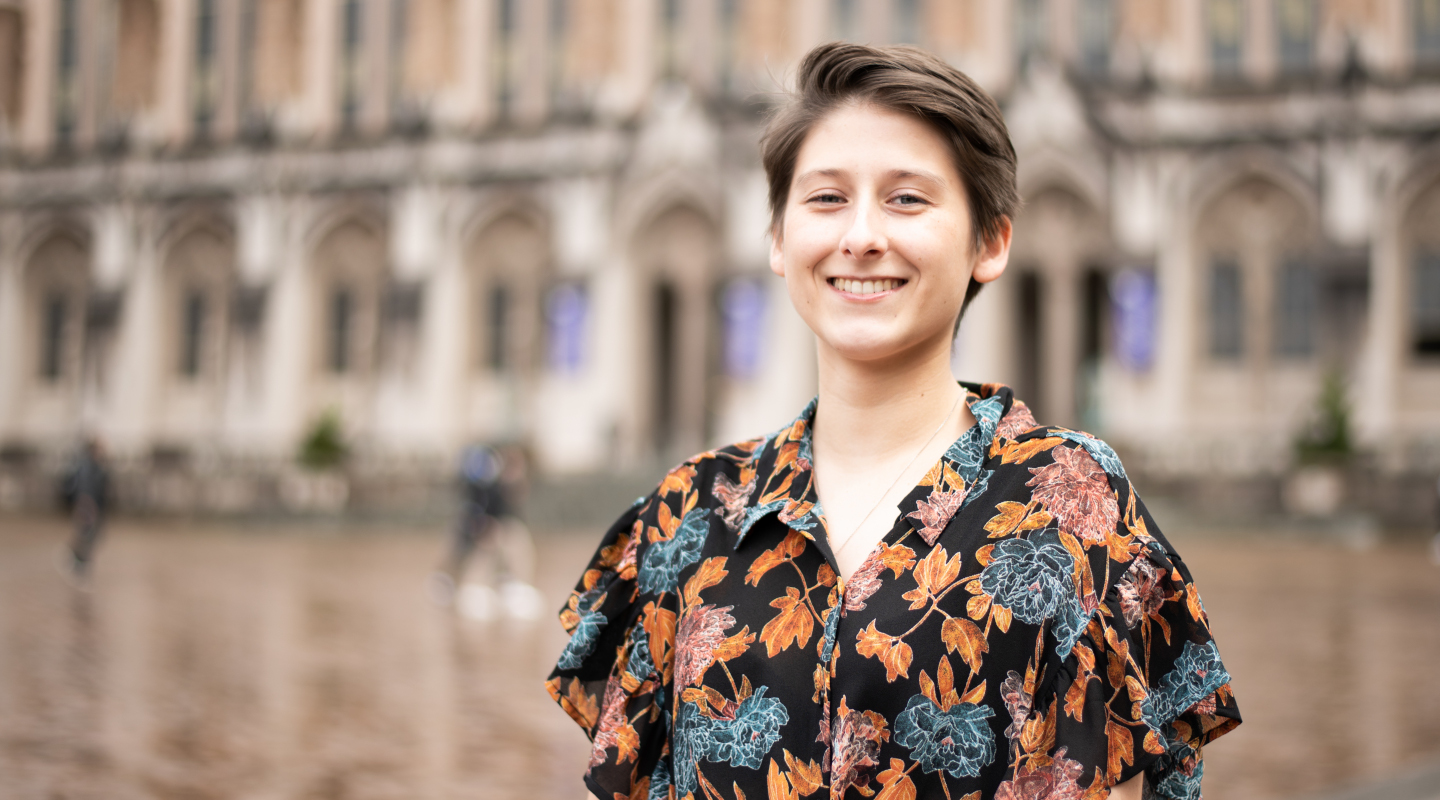Dylan Mckone embarked on a supernatural adventure in her INFO 402 class, exploring the intersection of technology and the representation of horror in entertainment.

Cross, an iSchool Ph.D. student, offered her students a broad choice to pursue topics they felt passionate about and encouraged them to structure their projects in a range of possible formats — such as a traditional essay, a podcast, a website, or even a video game.
“What I hoped to achieve with this project was to have the students come to their own understanding about how technology has meaning beyond its technical specifications and to recognize technology as a cultural artifact,” Cross said.
Following this line of creativity, Mckone’s video essay called into question why older technology is often used to tell supernatural stories. One could simply say these two things are connected, but the Informatics perspective inspired Mckone to dig deeper and discover that these associations do not exist in nature but are connections made by humans.
Mckone, a senior double majoring in German and Human-Centered Design and Engineering, felt prepared to tackle this final project with Cross’ guidance, despite it being her first Informatics course.
“Every time I had a conversation with Katherine, I left feeling like I had learned something,” Mckone said. “Her feedback was always clear and she gave a lot of flexibility and room for what we wanted to do for this assignment, which made me feel comfortable taking on a project that was a big bite for me.”
Cross challenged Mckone and her other INFO 402 students to adopt a humanistic take on technology. For Mckone, this meant understanding the impact of the way we talk about technologies when they are portrayed negatively in entertainment.
Mckone used case studies of horror podcasts and series to convey how older technology is used to add a layer of fear. She then conducted a series of interviews of sound designers, individuals familiar with her case studies, and people just interested in horror entertainment to assess how we form associations with technology.
“Us as humans are writing and consuming these stories. So naturally our biases and prejudices are the things impacting the way we talk about technology and the way that we feel about it,” Mckone said.
Since completing the project, Mckone has started thinking more critically about how she interacts with technology in her daily life and how such interactions will inherently evolve as time passes.
“The final project and the INFO 402 course really helped further my academic and personal growth by emphasizing the importance of diverse perspectives,” Mckone said. “The project especially enabled me to build skills that I otherwise would not have taken the time to learn, like video editing, and provided room to explore more technical skills too.”
For Cross, the purpose of this final project went beyond assessing the students’ learning, it was an opportunity to foster awareness about the human impact of technology.
“Technology is not neutral,” Cross said. “Technology is an expression of culture, ideas, norms and is shaped by those very things.”
